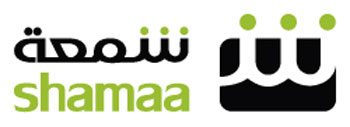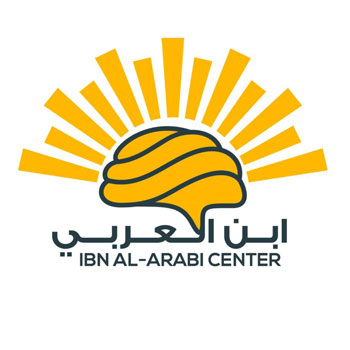مدى تحقيق برنامج GLOBE لأهداف التنمية المستدامة وتعزيز المواطنة البيئية بين الطلبة العُمانيين
DOI:
https://doi.org/10.56989/benkj.v5i4.1415الكلمات المفتاحية:
المواطنة البيئية، التربية البيئية، برنامج globe، أهداف التنمية المستدامة ، التربية المستدامةالملخص
يُعدّ التعليم البيئي أداةً أساسيةً لمواجهة التحديات العالمية، مثل تغير المناخ والاستدامة، وتهدف هذه الدراسة لدراسة مدى مساهمة برنامج GLOBE في تحقيق أهداف التنمية المستدامة، وتعزيز المواطنة البيئية لدى الطلبة العُمانيين، وتكمن مشكلة الدراسة في تقييم أثر البرنامج على سلوكيات الطلبة ومعتقداتهم البيئية، بالإضافة إلى وجهات نظر المعلمين والمعلمات حول فعاليته في تحقيق أهداف التنمية المستدامة المتعلقة بالتعليم والوعي البيئي.
اعتمدت الدراسة على منهجية وصفية، شملت عينةً من 400 طالب، و200 مشارك في برنامج GLOBE، و200 غير مشارك في البرنامج، من 44 مدرسة عُمانية خلال العام الدراسي 2024/2025. واستُخدمت أداتان رئيسيتان: استبانة لقياس المواطنة البيئية لدى الطلبة، واستبانة لقياس تقييمات المعلمين لدور البرنامج في تحقيق أهداف التنمية المستدامة. وأشارت نتائج الدراسة إلى أن برنامج GLOBE يعزز المواطنة البيئية بشكل كبير بين الطلبة المشاركين، مع تحقيق جميع المجالات المقاسة - المعرفة والسلوك والمشاعر والمعتقدات - بمستويات عالية أو عالية جدًا. وُجدت فروق ذات دلالة إحصائية بين المشاركين وغير المشاركين، لصالح الفئة الأولى. وكشفت الاختلافات القائمة على النوع الاجتماعي أن الطالبات أظهرن معتقدات بيئية أقوى وانخراطًا عاطفيًا من نظرائهن الذكور. وصنف المعلمون البرنامج على أنه فعال للغاية في تحقيق الأهداف المتعلقة بأهداف التنمية المستدامة، وخاصة في التعليم والعمل المناخي. وتوصي الدراسة بتعزيز البرنامج من خلال دمج المزيد من الأنشطة العملية لتعزيز المعرفة والسلوك البيئي للطلبة. كما تقترح الاستفادة من المعتقدات البيئية القوية للطلبة لتعزيز القيادة في مبادرات الاستدامة. ويُقترح توسيع نطاق البرنامج ليشمل المزيد من المدارس والفئات العمرية لتعظيم تأثيره على المواطنة البيئية وإنشاء نظام تعليمي وأدوات تهدف إلى تحقيق أهداف التنمية المستدامة.
Environmental education is a crucial tool for addressing global challenges such as climate change and sustainability. This study examines the extent to which the GLOBE Program contributes to achieving the Sustainable Development Goals (SDGs) and promoting environmental citizenship among Omani students. The research problem lies in assessing the program’s impact on students' environmental behaviors and beliefs, as well as teachers' perspectives on its effectiveness in achieving SDGs related to education and environmental awareness.
The study employs a descriptive methodology, utilizing a sample of 400 students,200 participants in the GLOBE Program, and 200 non-participants, from 44 Omani schools during the 2024/2025 academic year. Two primary tools were used: a questionnaire measuring students’ environmental citizenship and a survey evaluating teachers’ assessments of the program’s role in achieving SDGs.
The results indicate that the GLOBE Program significantly enhances environmental citizenship among participating students, with all measured domains—knowledge, behavior, feelings, and beliefs—achieved at high or very high levels. Statistically significant differences were found between participants and non-participants, favoring the former. Gender-based differences revealed that female students demonstrated stronger environmental beliefs and emotional engagement than their male counterparts. Teachers rated the program as highly effective in achieving SDG-related objectives, particularly in education and climate action.
The study recommends enhancing the program by integrating more hands-on activities to strengthen students' environmental knowledge and behavior. It also suggests leveraging students' strong environmental beliefs to promote leadership in sustainability initiatives. Expanding the program to more schools and age groups is proposed to maximize its impact on ecological citizenship and to create an education system and tools aimed at achieving the SDGs.
المقاييس
المراجع
Al-Hadeede, H. K., & Ambusaidi, A. K. (2020). The reality of applying the GLOBE environmental program in the Sultanate of Oman from the perspective of students and teachers. Journal of Al-Quds Open University for Educational & Psychological Research & Studies, 11(34), 1–20. https://journals.qou.edu/index.php/nafsia/article/view/2512
Al Qalhati, M. A. H., Shahat, M. A., & Ambusaidi, A. K. (2023). The extent to which the dimensions of scientific literacy are included in the projects participating in the GLOBE environmental program in the Sultanate of Oman. Journal of Educational Sciences, 23, 161–181. https://doi.org/10.29117/jes.2023.0143
Al-Rabaani, & Al-Shuili. Environmental knowledge, attitudes, and behavior among Omani post-basic education students. European Journal of Social Sciences, 60(1), 23–38. https://www.europeanjournalofsocialsciences.com/issues/PDF/EJSS_60_1_03.pdf
Ardoin, N. M., Bowers, A. W., & Roth, N. W. (2018). Environmental education and K–12 student outcomes: A review and analysis of research. The Journal of Environmental Education, 49(1), 1–17. https://doi.org/10.1080/00958964.2017.1366155
Baek, C., Saito-Stehberger, D., Jacob, S., Nam, A., & Warschauer, M. (2023). Computer science framework to teach community-based environmental literacy and data literacy to diverse students. arXiv preprint arXiv:2309.14098. https://arxiv.org/abs/2309.14098
Cao, B. (2018). Defining environmental citizenship. European Network for Environmental Citizenship (ENEC). https://enec-cost.eu/wp-content/uploads/2018/06/Keynote-Presentation-by-Dr-Benito-Cao-The-University-of-Adelaide-Australia-Defining-Environmental-Citizenship.pdf
Dobson, A., & Bell, D. (Eds.). (2006). Environmental citizenship. MIT Press.
Dobson, A. (2007). Environmental citizenship: Towards sustainable development. Sustainable Development, 15(5), 276–285.
Hadjichambis, A. C., & Paraskeva-Hadjichambi, D. (2022). Conceptualizing environmental citizenship for 21st-century education: Theoretical foundations and practical applications. Springer. https://doi.org/10.1007/978-3-030-84204-3
Hadjichambis, A. C., & Reis, P. (2020). Conceptualizing environmental citizenship for 21st-century education. Springer.
Harvard University. (2025). The GLOBE Program: Environmental science education. Retrieved from https://repository.gheli.harvard.edu/repository/13527
GLOBE Program. (n.d.). GLOBE teacher's guide. Retrieved from https://www.globe.gov/do-globe/globe-protocol
GLOBE Program. (2022). The GLOBE Program presents science summit at the United Nations General Assembly (UNGA77). Retrieved from https://www.globe.gov/news-events/globe-news/-/newsdetail/10157/the-globe-program-to-present-at-science-summit-at-the-united-nations-general-assembly-unga77-on-15-september?utm_source=chatgpt.com
GLOBE Program. (2019). United Nations Environment Programme. Retrieved from https://www.globe.gov/web/unitednations/unitednations/united-nations-environment-program-unep-
Oman Observer. (2021, March 22). Omani students shine at global science exhibitions. Oman Observer. https://www.omanobserver.om
Office of Science and Technology Policy. (2010). A review of Global Learning & Observations to Benefit the Environment (GLOBE). Retrieved from https://files.eric.ed.gov/fulltext/ED527259.pdf
Salame, R., Sabi, S., & Hamid, A. (2020). A study of the GLOBE Program and its impact on public school teachers and their students. Journal of Academic Perspectives. https://www.journalofacademicperspectives.com/app/download/969924744/Salame_Sabi_and_Hamid.pdf
Skinner, E., & Chi, U. (2012). Intrinsic motivation and engagement as “active ingredients” in garden-based education: Examining models and measures derived from self-determination theory. The Journal of Environmental Education, 43(1), 16–36. https://doi.org/10.1080/00958964.2011.596856
UNESCO. (2017). Education for sustainable development goals: Learning objectives. Paris: UNESCO. Retrieved from https://unesdoc.unesco.org
United Nations. (n.d.). Goal 4: Quality education. The Global Goals. Retrieved from https://globalgoals.org/goals/4-quality-education
United Nations. (2015). The Sustainable Development Goals. Retrieved from https://sdgs.un.org/goals
Wyles, K. J., Pahl, S., Holland, M., & Thompson, R. C. (2017). Can beach cleaners do more than clean-up litter? Comparing beach cleans to other coastal activities. Environment and Behavior, 49(5), 509–535. https://doi.org/10.1177/0013916516649412
التنزيلات
منشور
كيفية الاقتباس
إصدار
القسم
الرخصة
الحقوق الفكرية (c) 2025 مجلة ابن خلدون للدراسات والأبحاث

هذا العمل مرخص بموجب Creative Commons Attribution-NonCommercial 4.0 International License.































 ElDjawda Soft
ElDjawda Soft